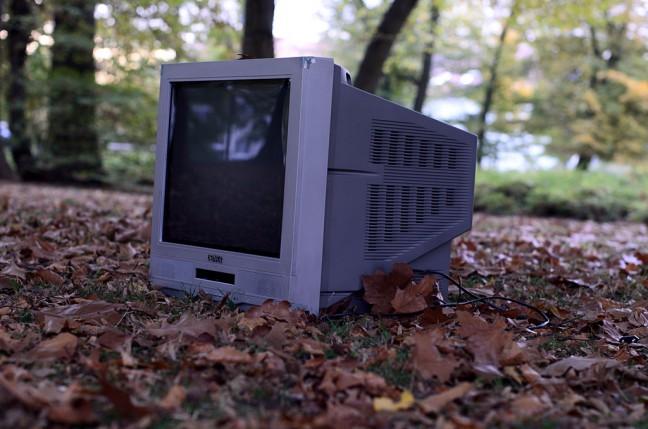When production on HBOMax’s latest miniseries, “Station Eleven”, started, no one could have foreseen just how eerily relevant it would become. The series, created by University of Wisconsin alumni Patrick Somerville, is based on Emily St. Mandel’s 2014 novel of the same name and follows a young girl named Kirsten as she navigates the world after a devastating flu pandemic that wipes out most of the world’s population.
The series began filming in January 2020, but halted production in March due to the real-world COVID-19 pandemic. Somerville said the pandemic shook their team just like it shook everyone else.
“The first part of that conversation was ‘this is really fucking weird,’” Somerville said. “I think we had the same experience as everyone. It was less about TV and work and more about, ‘woah, what are we doing and what’s going on with our families.’”
While some may have argued it was not the right time to release a post-apocalyptic pandemic show, Somerville and his team knew their story could be successful, even as its audience was living through a world-changing pandemic themselves.
“It felt like we had the right filter, the right point of view about how to do this kind of story in a way that wouldn’t just re-traumatize everybody who we were asking to watch it,” Somerville said. “It wasn’t a post-apocalyptic show exploiting how horrible the end of the world is or exploiting survival situations. Had it been, I think it would have been hard to continue, but it was a show that was already trying to be about rebuilding, already trying to be about joy and happiness and how to create out of destruction.”
’30’ artist Adele signs multi-million dollar deal for Vegas residency
When production picked back up, writers knew their story would hit close to home, but they didn’t shy away. Not only do viewers see their own pandemic-induced anxiety reflected on screen, but they also get to see how the characters in “Station Eleven” deal with these all too familiar emotions. In a way, it’s cathartic.
“In some ways, the writers’ room had already gotten to some of the weird and scary wrinkles of a pandemic, as did Emily in her novel, but what I noticed watching it is you can really feel in a new way, in a known way, the anxiety,” Somerville said. “The thing that changed was us, just like everyone else. You can’t live from March 2020 to February 2021 and not have a new perspective on what matters.”
Opinion: Ted Lasso is the best show on television, deserves every award ever
Though the show is set in the aftermath of an apocalyptic pandemic, it’s also about so much more. The series continuously poses the question, if the world ended, what would we still care about?
It touches on tensions between generations, childhood, the persistence of art, the realities of cults, life with disabilities and more. At its core, “Station Eleven” is a story about resilience and finding beauty and power in difficult situations.
“The pandemic was disempowering for all of us, but also I feel like a lot of people have been oddly empowered in some way,” Somerville said. “There’s something that forces the truth out a bit when you’re put under pressure.”
The COVID-19 pandemic has shaped us in many ways. It has emphasized the importance of having strong relationships, forced us to be resilient and fundamentally changed the way we feel about society. “Station Eleven” echoes these changes. It shows how people not only survive an apocalyptic pandemic but thrive in its aftermath. After all, survival is insufficient.
All 10 episodes of “Station Eleven” are available to stream now on HBOMax.








